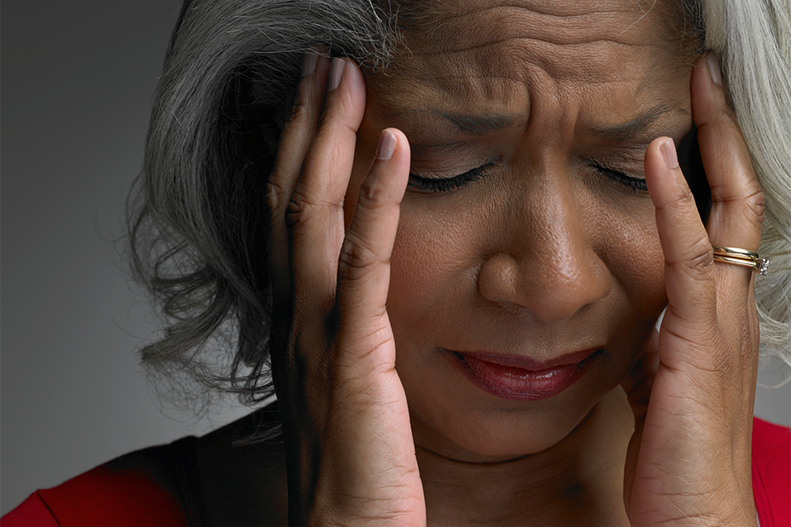Let’s face it, headaches are not fun. The constant throbbing and agonizing pain and pressure can make life miserable. For some, headaches come and go, and for others, they are a part of everyday life. But how do you really know if you are suffering from just a common headache or migraines?
Here are some quick tips to help you determine what’s causing your head to pound:
The most common type of headache, called a tension headache, is often experienced as mild, dull pressure without other accompanying symptoms. Although tension headaches can be painful, they are rarely a sign of a more serious illness. A combination of lifestyle changes, relaxation techniques, and traditional and complementary therapies can help reduce the number of tension headaches you have.
On the other hand, a migraine headache can be quite severe, causing intense pulsing or throbbing sensations in one area of your head. The pain can last from four hours to up to a week, and occur two to four times a month. Your headache may be a migraine if you have any combination of these symptoms:
- Moderate to severe pain (often described as pounding, throbbing pain) that can affect the whole head, or can shift from one side of the head to the other
- Blurred vision
- Sensitivity to light, noise or odors
- Nausea, vomiting, upset stomach, or abdominal pain
- Loss of appetite
- Paleness
- Fatigue
- Dizziness
- Fever (rare)
- Bright flashing dots or lights, blind spots, wavy or jagged lines
It’s important to visit with your neurologist if you experience frequent migraines in order to rule out underlying issues. There are many treatment options available that can help limit your migraines, including a combination of medications, lifestyle changes, and complementary therapies.
If you are diagnosed with a migraine, learning your personal triggers and avoiding them is an excellent way to prevent them, including:
- Stay on a regular sleep schedule
- Go to bed and wake up around the same time every day, even on weekends
- Eat regularly
- Drink plenty of water
- Dehydration can cause migraine headaches
- Avoid food triggers: (MSG), nitrates and nitrites, alcohol, chocolate, large amounts of caffeine
- Exercise regularly
- Avoid stressful situations
